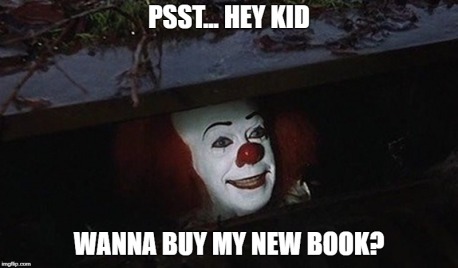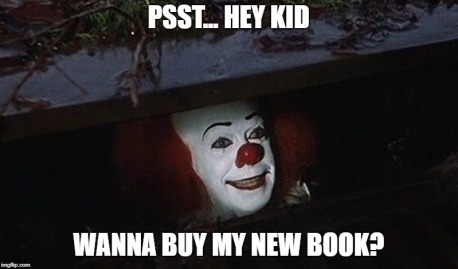Coming from an IT background, I think it’s important to look back what went good and bad after finishing a project.
The Good
Lesson 01: Writing a book is not that hard if you do it because you want to.
What do I mean by that? I’m not a writer because I want to make a living as a writer. If I would want to be one, I’d write porn books, because they sell like crazy.
I write short stories and books because I like to tell stories, and I love when people enjoy my work. I’m not saying that millennial craving for Instant Gratification doesn’t play a part, but whoever does is a lier. Just like people who tell you they never peed in the shower. It’s water efficient and… I’m getting off track.
If you write because you like to write, not because it’s a thing you decided to do, it will be easy.
Lesson 02: Tutorials do exist for writing a book, you just have to look for them
Not only tutorials like the Snowflake Method (which I built my novel on) but a myriad of tools, websites, and helpful authors are available and even eager to help you.
Here is a list of websites I’ve used the most:
|
Lesson 03: Tools made for writing actually help
If you are a writer and haven’t heard of Scrivener, then boy have I got good news for you. I’m no expert, but as a quick Google search will tell you, it is the de facto software for authors. Worth every penny.
There are other writing software out there, so please look around, and sure you can use Google Docs (that is how I started), but you’ll soon realize you need a bit more than that.
Lesson 04: Beta Readers
Beta Readers are free, enthusiastic editors – if you find the right ones. Forcing your book on someone by emotional blackmail (“Please baby, it’s my book, you have to read it!”) is not as effective as asking people who want to read it, and want to be part of its evolution.
You’ll find Beta Readers that have writer aspirations as well but don’t actually write themselves. If you find one like this, you’ve hit Jackpot.
The Bad
Lesson 05: Editing Sucks.
There is no way around it. Editing sucks. Whoever tells otherwise is a masochist.
I’ve read tons of article on how to make it fun and entertaining, but in the end, it’s work that has to be done. There are a lot of things you can do while you write your manuscript, but unless you are a prodigy, you will need to edit. But here comes the good news:
It will make your book better.
I know it sounds self-explanatory, but it is crucial to consciously remember this. During my editing process, half of the story changed, massive plot holes were filled, and characters evolved. At some point – if you put enough effort into your characters – they start to write the book for you!
I remember this one specific case where my male protagonist was going through something, and at some point, I just stopped and said “He wouldn’t do this. He would want to do it another way”. That cost me three chapters to re-write completely, but it was well worth the effort.
Lesson 06: Editing the story is like editing code. Fix one bug and two others pop-up
This is the most frustrating thing. Depending on the complexity of your book, and the number of threads in it, changing one thing might cause a butterfly effect, so make sure to back up often.
Changing something at the beginning of the book even if something insignificant that sounds better could lead to the readers being confused if the change hasn’t been cascaded within the manuscript.
And The Ugly (Truth)
Lesson 07: No one is going to buy your book unless you make them
Unless you are the love child of George R. R. Martin and J. K. Rowling people won’t stand in line to buy your book unless you engage them.
This can be marketing, social media, or standing on corners asking people directly. You need to find a way for people to a) know about your book b) have a reason to buy your book.
This last bit I’m still figuring out, so I’ll update the article if I get any smarter. In the meantime, my novel is available Worldwide on Amazon for Kindle, with the printed version coming soon! (see what I did there?)

Leave a comment